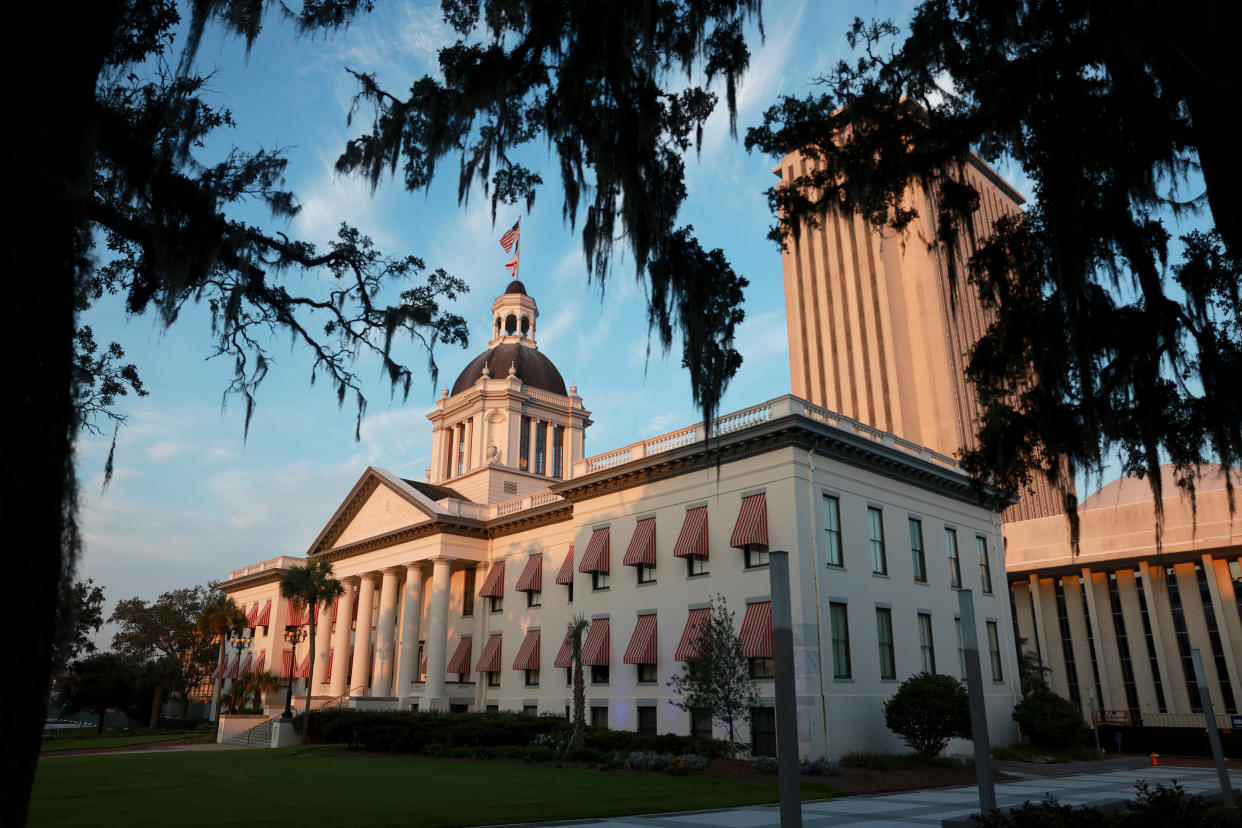Florida lawmaker revives libel bill criticized in GOP presidential debate

- Oops!Something went wrong.Please try again later.
- Oops!Something went wrong.Please try again later.
- Oops!Something went wrong.Please try again later.
ORLANDO, Fla. — A Florida Republican has introduced a scaled-back version of a bill that aims to make it easier for prominent people to sue for libel, a proposal that died earlier this year in the state Legislature after receiving bipartisan criticism.
State Rep. Alex Andrade’s new proposal seeks to change long-standing legal standards dealing with anonymous sources. Andrade’s previous bill was mentioned in the GOP presidential debate on Wednesday when Gov. Ron DeSantis and presidential rival Nikki Haley clashed over the merits of anonymous political speech.
Andrade, R-Pensacola, has said it should be easier for people whose reputations are harmed by false information to get justice. DeSantis also trumpeted that idea, holding an event in February calling for action to combat what he termed “legacy media defamation practices.”
But First Amendment advocates say the proposed changes raise constitutional issues and would chill free speech across the political spectrum and not just for traditional media outlets.
“Florida is a place where the First Amendment gets assaulted relentlessly,” said Bobby Block, executive director of the Florida First Amendment Foundation. “It is making it easier for rich and famous people or prominent individuals … to take their critics to court.”
The bill (HB 757) would consider false statements about public figures based on anonymous sources to have been published with “actual malice.”
For prominent people to win a libel lawsuit, they must show that a publisher went beyond negligence and acted with actual malice, defined as “with knowledge that it was false or with reckless disregard of whether it was false or not.”
That legal standard was first laid out in the landmark 1964 U.S. Supreme Court decision in New York Times v. Sullivan.
Andrade did not respond to a request Friday for a comment on his newest proposal. It is scaled back from his previous bill, which would have considered any statement from an anonymous source to be “presumptively false.”
The newest bill, filed on Wednesday, leaves out other provisions from his earlier proposal.
Andrade’s bill doesn’t define “public figure,” but the courts have generally defined it as someone who has achieved fame or notoriety or has voluntarily or involuntarily entered the public spotlight.
DeSantis has been attacking Haley over her calls to root out anonymous accounts on social media, saying users should be required to verify their identity. DeSantis slammed Haley over her stance and touted the important role that anonymous writings have played in American history.
“We have anonymous speech,” DeSantis said during the debate in Alabama. “The Federalist Papers were written with anonymous writers. Jay, Madison and Hamilton, they went under Publius.”
Haley then fired back with a reference to the libel bill, saying DeSantis “actually went and tried to push a law that would stop anonymous people from talking to the press.”
Public records obtained by the Orlando Sentinel showed the governor’s office reviewed a draft version of the defamation bill in 2022. A briefing document stated the intention was to “invite challenges” to U.S. Supreme Court precedent “with the goal of restoring the original understanding of the First Amendment.”
Asked about Andrade’s latest bill, Jeremy Redfern, a DeSantis spokesman, said in an email it is under review, along with other legislation filed by lawmakers, and reiterated the governor’s opposition to Haley’s proposal.
“Still, we have always taken issue with left-wing media defaming people based on untrue statements coming from anonymous sources,” Redfern said. “It is wrong.”
But Block said the bill in question would affect all types of published statements, including those from conservative commentators. Several notable conservatives opposed Andrade’s bill earlier this year, including U.S. Rep. Cory Mills and James Schwartzel, the owner of a conservative radio station in Southwest Florida.
“The irony is the other night in the debate Gov DeSantis was defending anonymous speech,” Block said. “This punishes anonymous speech.”
Andrade’s bill also seeks to deal with painting someone in a “false light” using artificial intelligence. That provision would open up people to liability if they use “artificial intelligence to create or edit any form of media so that it attributes something false to or leads a reasonable viewer to believe something false about another person.”
The statute would apply if the content is deemed to be “highly offensive to a reasonable person” and done by someone who knew the information was false or acted in “reckless disregard as to the false implications.”
Block said he thinks Andrade’s bill will face an uphill climb in the Legislature based on the opposition it garnered earlier this year. A Senate companion bill has not been filed.
State Sen. Jason Brodeur, R-Lake Mary, who sponsored a companion measure last time, did not respond to a request for comment.
Lawmakers start their 60-day legislative session on Jan. 9.
_____

